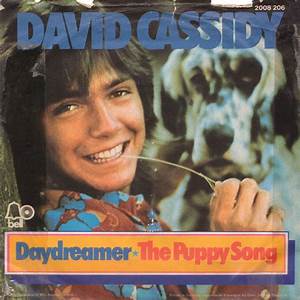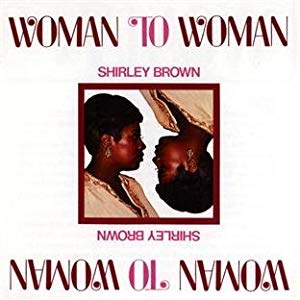Related Research Articles

Carla Venita Thomas is an American singer, who is often referred to as the Queen of Memphis Soul. She is best known for her 1960s recordings for Atlantic and Stax including the hits "Gee Whiz " (1960), "B-A-B-Y" (1966) and "Tramp" (1967), a duet with Otis Redding. She is the daughter of Rufus Thomas.
"Iko Iko" is a much-covered New Orleans song that tells of a parade collision between two tribes of Mardi Gras Indians and the traditional confrontation. The song, under the original title "Jock-A-Mo", was written and released in 1953 as a single by James "Sugar Boy" Crawford and his Cane Cutters but it failed to make the charts.
The Soul Children was an American vocal group who recorded soul music for Stax Records in the late 1960s and early 1970s. They had three top 10 hits on the U.S. Billboard R&B chart – "The Sweeter He Is" (1969), "Hearsay" (1972), and "I'll Be the Other Woman" (1973) – all of which crossed over to the Billboard Hot 100.
The Clapping Song is an American song, written by Lincoln Chase, originally arranged by Charles Calello and recorded by Shirley Ellis in 1965.

"If Only You Knew" is a single written and produced primarily by Dexter Wansel and Cynthia Biggs for American singer Patti LaBelle's sixth solo album, I'm in Love Again. It was released as the album's official first single in 1983, spending four weeks at #1 on the U.S. R&B chart during January and February 1984; it reached #46 on the Billboard Hot 100.

"Elvira" is a song written and originally recorded by Dallas Frazier in 1966 on his album of the same name. Though a minor hit for Frazier at the time of release, the song became a bigger and much more famous country and pop hit by the Oak Ridge Boys in 1981. "Elvira" is now considered one of the Oak Ridge Boys' signature songs.
"Chapel of Love" is a song written by Jeff Barry, Ellie Greenwich and Phil Spector, and made famous by The Dixie Cups in 1964, spending three weeks at number one on the Billboard Hot 100. The song tells of the happiness and excitement the narrator feels on her wedding day, for she and her love are going to the "chapel of love", and "[they'll] never be lonely anymore." Many other artists have recorded the song.

"Daydreamer" is a song by the American singer David Cassidy.
"Who Can I Turn To?" (alternatively titled "Who Can I Turn To (When Nobody Needs Me)") is a song written by English composer-lyricists Leslie Bricusse and Anthony Newley and first published in 1964.
"Papa Don't Take No Mess" is a funk song performed by James Brown. An edited version of the song released as a two-part single in 1974 was Brown's 17th and final number one R&B hit and peaked at number thirty-one on the Hot 100. The full-length version, nearly 14 minutes long, appeared on the double album Hell.

"The Long Run" is a song written by Don Henley and Glenn Frey and recorded by the Eagles. The sound of the song is viewed as a tribute to the Stax / Memphis rhythm and blues sound. It was the title track of their album The Long Run and was released as a single in November 1979. It reached No. 8 on the U.S. Billboard Hot 100 in early 1980. It was the second of three singles released from The Long Run album, preceded by "Heartache Tonight," which reached No. 1 on the Billboard Hot 100 in November 1979, and followed by "I Can't Tell You Why," which also reached No. 8 on the Billboard Hot 100, in the spring of 1980.

Homer Banks was an American songwriter, singer and record producer. Although best known by many for his songwriting for Stax Records in the 1960s and 1970s, some of his own releases from the 1960s are considered classics on the Northern Soul scene. Many of the songs he wrote have become contemporary classics.

"Woman to Woman" is the title of a 1974 deep soul single recorded by Shirley Brown for whom it was a #1 R&B hit.

"All This Love" is a single by DeBarge, released on October 17, 1982. The song was released as the third and final single from their second studio album of the same title on the Gordy label. The single would help DeBarge rise to R&B stardom. A cover version of the song was recorded by Patti LaBelle on her 1994 gold album Gems. A video for her version was also filmed.

"Spinning Wheel" is a song recorded in 1968 by Jazz fusion/Rock band Blood, Sweat & Tears; it was written by Canadian lead vocalist David Clayton-Thomas and included on their eponymous album, released in 1968.

"Black Is Black" is a song by the Spanish rock band Los Bravos, released in 1966 as the group's debut single for Decca Records. Produced by Ivor Raymonde, it reached number two in the UK, number four in the US, and number one in Canada. With the recording's success, Los Bravos became the first Spanish rock band to have an international hit single. A dance remix was released as a single in 1986.
"There Stands the Glass" is a country song written by Russ Hull, Mary Jean Shurtz, and Audrey Grisham. Originally recorded by Blaine Smith in 1952, it was a hit for Webb Pierce in 1953. It was Pierce's fifth release to hit number one on the country chart. It spent 27 weeks on the chart and was at the top for 12 weeks.

"Say You Love Me" is a song written by English singer-songwriter Christine McVie for Fleetwood Mac's 1975 self-titled album. The song peaked at No. 11 on the Billboard Hot 100 for three weeks, and remains one of the band's most recognizable songs. Its success helped the group's eponymous 1975 album sell over eight million copies worldwide.

"Tonight's the Night" is a song by the American girl group the Shirelles, from their 1961 album Tonight's the Night. Written by Luther Dixon and Shirley Owens, the song dealt with a woman's feelings before losing her virginity and was released as the pre-album's second single in 1960. In 2010, Rolling Stone listed as one of the 500 greatest songs of all time.
"For Ol' Times Sake'" is a song by Tony Joe White, covered in 1973 by Elvis Presley.
References
- ↑ Whitburn, Joel (2013). Joel Whitburn's Top Pop Singles, 14th Edition: 1955-2012. Record Research. p. 243.
- ↑ "Dixie Belles Songs, Albums, Reviews, Bio & Mor..." AllMusic. Retrieved 2025-01-05.
- ↑ "Dixie Belles Songs, Albums, Reviews, Bio & Mor..." AllMusic. Retrieved 2025-01-05.
- ↑ Liner notes for The Sound Stage 7 Story, Charly Records (UK), 1996.
- ↑ "The Charmels". Discogs. Retrieved 2025-01-05.
- ↑ "The 50 Greatest Hip Hop Samples of All Time". BET. Retrieved 2025-01-05.
- 1 2 "Mrs. Shirley Jean Gant July 23, 1943 - May 9, 2018". lawrenceemoonfuneralhome.com. Retrieved May 30, 2021.